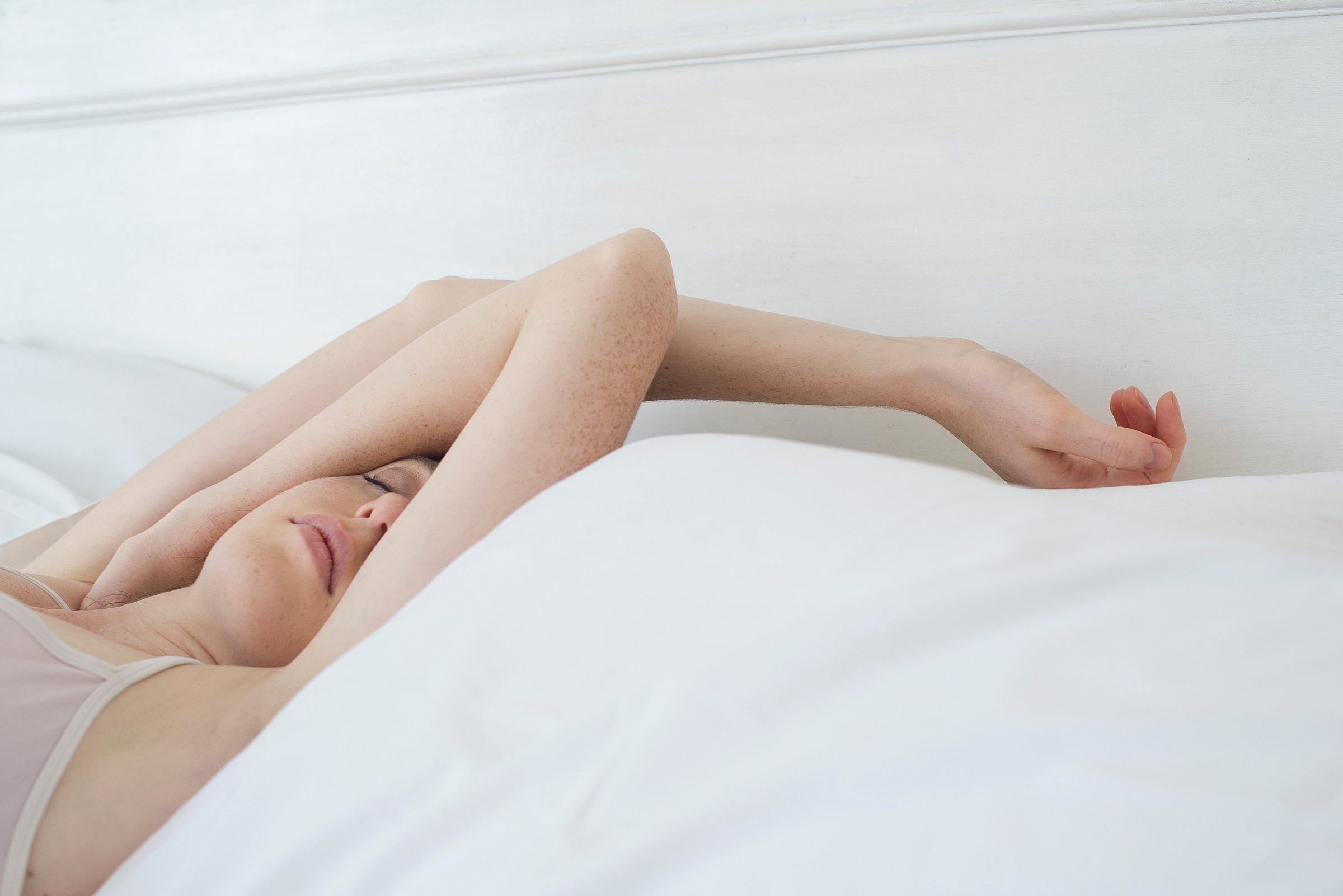
It can be disconcerting to climb into bed, fall asleep easily and wake up drenched in sweat hours later—or to feel overheated once insomnia kicks and you just can’t seem to turn off your brain. What’s the cause of these nighttime blasts of heat?
“I started studying night sweats because I had patients asking me about them, and I wanted to give them an answer,” says Dr. James Mold, emeritus professor of family and preventive medicine at the University of Oklahoma College of Medicine.
In 2011, Mold published a review study that looked at all the available research on the causes and symptoms of night sweats. He turned up more questions than answers. Even the definition of “night sweats” is not well-established, and descriptions of the condition range from mild to “drenching” perspiration.
“One thing we did find is that sweating at night is associated with states of arousal, and that some of the things that cause people to sweat at night include [antidepressants] or blood pressure medications, alcohol or eating too close to bed,” Mold says. Each of these can disrupt the body’s natural metabolic slow-down or temperature-control mechanisms, and so disrupt or curtail sleep, his study suggests.
Of course, the hormone shifts associated with menopause are also a common cause of nighttime hot flashes, says Dr. Hadine Joffe, an associate professor in the division of sleep medicine at Harvard Medical School. Even if you’re not waking up in a pool of sweat, these hormone shifts can cause “mini arousals”—basically, periods of very light sleep—that can cause a person to feel unrefreshed or “sapped” during the day.
Intense exercise too close to bed can also “throw off” the body’s thermoregulation processes, says Michael Grandner, an associate professor and director of the Sleep & Health Research Program at the University of Arizona College of Medicine. He explains that a person’s body temperature naturally dips just before bed, which promotes sleep. Eating or exercising too close to bed can fire up your metabolism, which increases heat production and so may interfere with the body’s natural powering down.
MORE: TIME’s Guide To Sleep
But what about the sudden surge of heat on those nights when you can’t sleep? Those could be caused by everything from an over-active brain to the types of bedding or attire you favor. “Nighttime sweats are often simply caused by pajamas, mattresses and sheets that don’t breathe well,” Grandner says.
Your body’s built-in sleep clocks cause your core temperature to drop during the hour or two before bed, and once you’re asleep, it should continue to drop very gradually until reaching its lowest point sometime around 3 A.M., Grandner explains. Anything that messes with those normal temperature progressions can disrupt your sleep. If you were nice and cool when you got into bed, loading up on heavy pajamas or extra-warm blankets could trap heat, disrupt your body’s natural temperature slide and keep you awake.
There’s also some evidence linking insomnia with higher levels of autonomous nervous system arousal, including a rapid heart rate, higher metabolism and increased body temperature. While the research is a little spotty, it suggests an overactive, agitated mind—one preoccupied with worry or thoughts of the coming day—could lead to the release of the stress hormones cortisol, which could rev up some internal functions that produce heat.
That could explain why, on nights when you can’t sleep, you end up kicking off your covers and turning over your pillows in search of some cool comfort.
To stave off the sweats, start by swapping out your existing bedding for comforters and sheets that breathe well and keep cool. Untreated cotton is always a good, affordable option. Grandner also says that many foam mattresses trap heat; be sure to select a mattress (and mattress pad or topper) that will help promote cool sleeping.
Sleeping with one foot outside of your covers may also help. “The bottom of the feet have important temperature sensing functions and can help the body maintain a cool sensation even under a warm blanket,” Grandner says. The same is true of your neck, so try to keep it and your head outside of your comforter. (Some research shows that cooling your head at night, either with a cooling cap or by turning down the thermostat, can combat insomnia.)
If your nighttime sweats seem to be caused by meds or menopause, tell your doctor. He or she may be able to switch your medications to stop your symptoms. For menopause-related hot flashes, there are drug therapies—both hormonal and not—that can help, Joffe says.
Keeping cool at night is easier said than done. But understanding that heat is the enemy of sleep can help you snooze more soundly.
More Must-Reads from TIME
- Cybersecurity Experts Are Sounding the Alarm on DOGE
- Meet the 2025 Women of the Year
- The Harsh Truth About Disability Inclusion
- Why Do More Young Adults Have Cancer?
- Colman Domingo Leads With Radical Love
- How to Get Better at Doing Things Alone
- Michelle Zauner Stares Down the Darkness
Contact us at letters@time.com